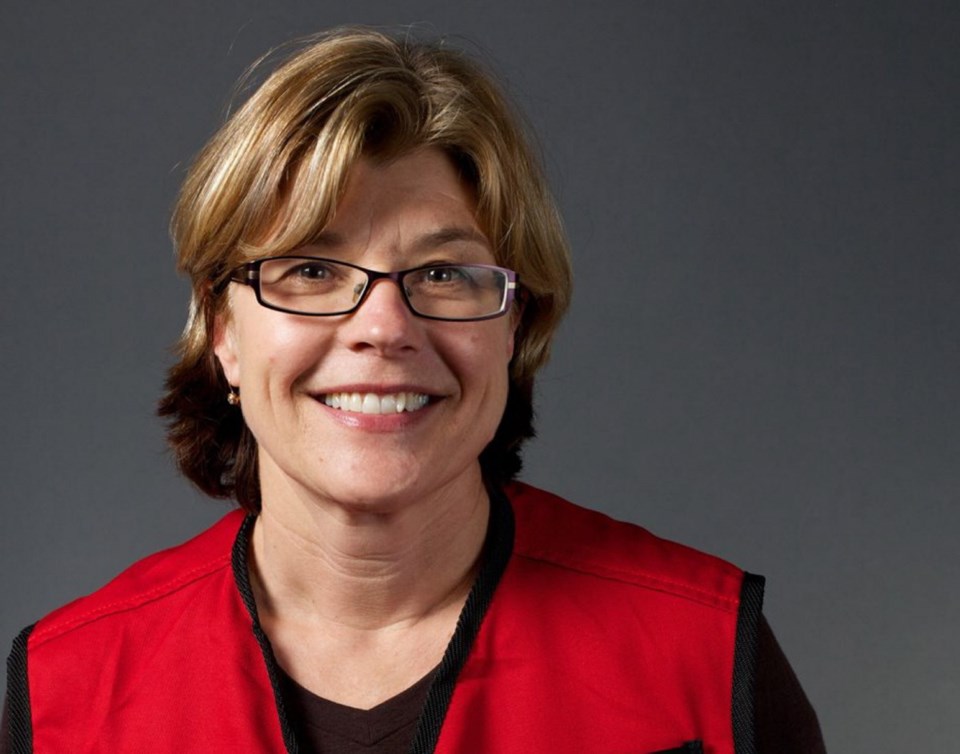Victoria’s Dana Carr is back from the epicentre of the Ebola outbreak in the African country of Sierra Leone, where she saw the dreadful reality of the often-fatal disease.
That included seeing burials of Ebola victims, some where parents and their children had all succumbed.
“It was horrible,” she said.
Carr is a field epidemiologist, and most of what she did was away from clinical settings and direct contact with the disease.
“My activities were fairly low-risk,” Carr said. “I wasn’t doing case management, so I wasn’t in a hospital taking care of somebody with Ebola, which is a whole other ball game.”
She said she spent her time out in various communities.
Carr’s work history includes a long stint with Island Health as a nurse, which she followed with studies in epidemiology and other specialized training. She was a delegate with the Canadian Red Cross and part of its Emergency Response Unit in Sierra Leone from June 25 to July 20.
“I was out there really to collect information and gather data from various sources to try and identify gaps in the response.”
She took precautions to avoid infection.
“You just had to be wary. We wore long sleeves most of the time. Nobody shakes hands, and you use lots of hand sanitizer.”
Ebola is a virus spread through blood and bodily fluids.
“It transmits through households,” Carr said. “An infected person will transmit it through a close contact, so somebody they’re sharing utensils with, somebody they’re sleeping with.
“This particular Ebola virus has a case fatality rate of about 60 to 70 per cent. In other strains it can be up as high as 90 per cent.”
It is thought that fruit bats could be the “reservoir” for the virus, Carr said, and that monkeys or other sources of “bush meat” become indirectly infected.
“Then the people eat the bush meat and they become infected, then it’s transmitted person-to-person,” Carr said.
She said the disease moves quickly.
“It starts off as general flu, then nausea, vomiting, diarrhea and then internal and external hemorrhaging, in some cases,” she said. “You can support symptoms but there’s no treatment that you can give to stop it and there’s no vaccine to prevent it.”
Complicating matters is the nature of the area where Ebola has been concentrated, Carr said, which also includes Guinea and Liberia.
“What you saw in Sierra Leone is it’s a hot country, it’s a lot of poor farmers where we were, very rural, very hard to get to.
“This is a quite impoverished area of Africa.”
Carr said containing Ebola requires expertise and equipment that have to come from outside the affected region.
Along with that, fear has led some local health-care workers to leave their clinics — leaving the Red Cross, the World Health Organization and other groups to step in.
Carr was in Haiti during a cholera outbreak in 2011, and said she is still eager to help in developing countries.
“I will go out again if I’m asked.”
She said she was given a thorough physical examination before returning.
Last week, a mix-up led to reports that Dr. Azaria Marthyman of Victoria was under quarantine after a volunteer term with the group Samaritan’s Purse in Africa helping in the fight against Ebola. Marthyman spent several weeks in Liberia and returned home in good health. He was not quarantined.
To support the efforts of the Red Cross in Africa, go to redcross.ca. or call 1-800-418-1111.



